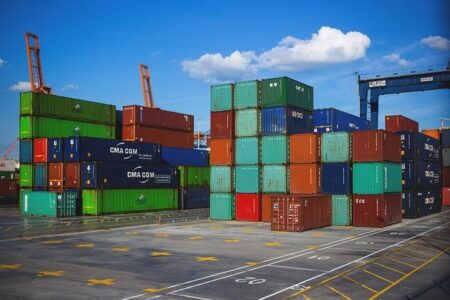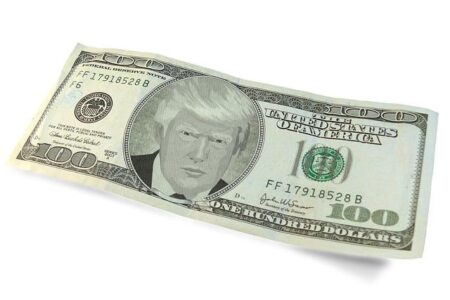India is boldly navigating the challenges of international sanctions to keep its Russian oil flowing. Through clever financial maneuvers and strategic diplomacy, the country is securing a steady energy supply even as geopolitical tensions escalate, Al Jazeera reports
Browsing: international trade
The United Kingdom stands tall as a global trade powerhouse, exporting an impressive array of goods from cutting-edge machinery to advanced vehicles. Its most dynamic trade links span the EU, the US, and China, highlighting a thriving network of international economic partnerships, reports The Observatory of Economic Complexity
Large Indian refiners are ramping up their purchases of Russian oil, enticed by highly competitive prices. In contrast, Reliance Industries is treading carefully, opting to hold back amid the current geopolitical uncertainties, Bloomberg reports
China is preparing to restrict access to Nvidia’s state-of-the-art H200 AI chips, even after recent export approvals were granted under the Trump administration, Reuters reports. This development underscores the ongoing tensions in US-China technology relations
The U.S. Customs and Border Protection (CBP) leads the charge in enforcing the U.S.-Mexico-Canada Agreement (USMCA), fueling smooth trade flows and championing the newest trade standards among these three vibrant nations
Russia is gearing up to ramp up its LPG exports to China by a striking 40% in 2026, reveals consultancy Rystad Energy. This significant surge underscores deepening energy ties as Russia taps into new markets amid shifting global demand
France is launching an ambitious new plan to safeguard its food production against the rising tide of competing imports. Aiming to protect domestic agriculture and secure the nation’s food future, Bloomberg reports this bold strategy focuses on empowering local farmers and reducing the influence of foreign market pressures
The US has approved a $93 million arms sale to India, signaling a major leap forward in defense cooperation as trade tensions ease. This deal includes state-of-the-art military technology aimed at strengthening the strategic alliance between the two countries, officials reveal
The United States and Argentina have come together to create a powerful framework agreement aimed at supercharging trade and investment between them. This thrilling milestone opens the door to deeper economic collaboration and shared prosperity, laying the foundation for a bright and thriving future for both nations
California and Chinese businesses are enthusiastically joining forces to ignite trade and fuel groundbreaking innovation. This vibrant partnership aims to strengthen economic ties amid the shifting landscape of global markets, reports China Daily
France is back in the spotlight as local tomato growers flood the streets, fiercely protesting against Moroccan imports they say undercut their livelihoods. This fiery clash exposes the ongoing struggles and deep tensions within the horticulture industry over trade and pricing
India has secured a groundbreaking $2 billion deal with Russia for state-of-the-art submarines during President Putin’s visit, marking a bold new chapter in defense collaboration, NDTV reports. This strategic agreement promises to dramatically boost India’s naval capabilities
China-France economic and trade cooperation acts as both a steady “ballast” and a powerful “propeller” in their bilateral relationship, not only grounding their ties but also driving dynamic growth, officials told the Global Times amid rising global uncertainties
Indian fertiliser firms are gearing up to join forces with Russian company Uralchem to launch a new manufacturing plant in Russia, sources told Reuters. This exciting partnership is designed to ramp up fertiliser production and tackle the ongoing global supply challenges head-on
French President Emmanuel Macron urged Chinese President Xi Jinping to ramp up Chinese investments in France, seeking to close the widening trade gap, Bloomberg reports. The two leaders emphasized their shared dedication to strengthening economic ties between their countries
The U.S. has reportedly hit the pause button on plans to sanction a Chinese spy agency, all to safeguard the fragile trade truce, according to sources cited by the Financial Times. This strategic move aims to keep tensions from boiling over during these delicate negotiations, Reuters reveals
China and France have built a vibrant economic partnership over the decades, powered by growing trade, bold investments, and pioneering collaborations in technology and green energy. United in purpose, they are igniting innovation and fueling rapid growth for both nations
The US has established dynamic framework trade agreements with Argentina, Ecuador, El Salvador, and Guatemala, paving the way to deepen economic partnerships, unlock new market opportunities, and fuel sustainable growth across the Americas
Argentina’s Southern Energy has just secured a game-changing $7 billion LNG export deal with China’s SEFE, igniting a powerful surge in Argentina’s energy sector and strengthening the bond between the two countries’ energy markets
China has just unveiled its first batch of streamlined export licenses for rare earths, sources tell Reuters. This bold step aims to boost supply amid soaring global demand and ease trade tensions, signaling a major strategic shift in how the country manages its critical resources




















